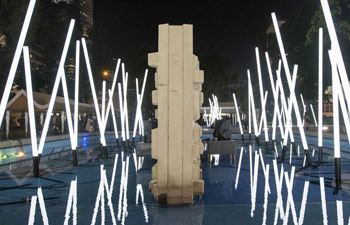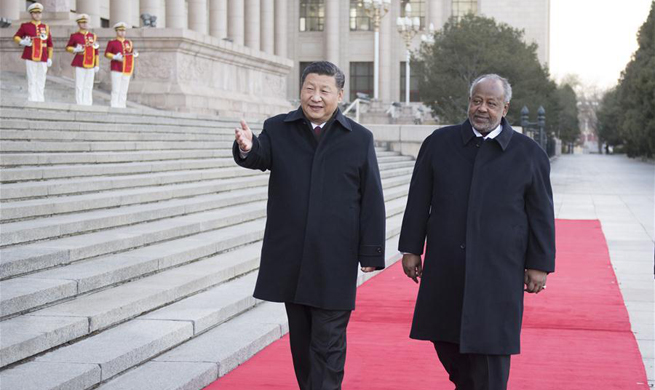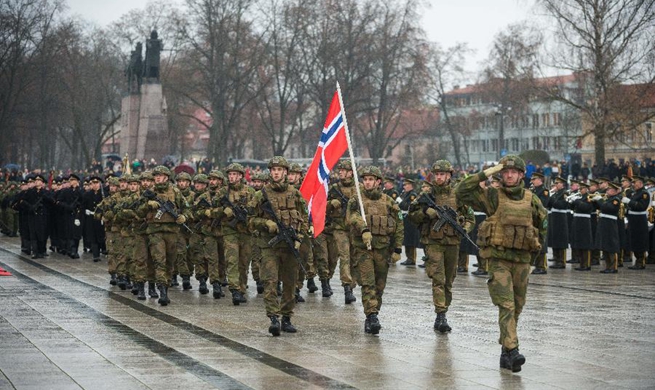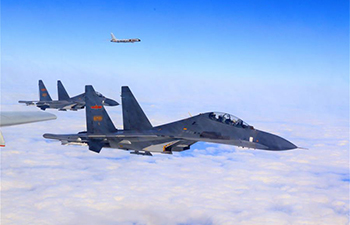by Osama Radi and Emad Drimly
GAZA, Nov. 23 (Xinhua) -- An internal Palestinian reconciliation dialogue, which was held in Cairo on Tuesday and Wednesday, achieved no real progress to end the decade-long internal division, according to Palestinian analysts.
The final statement issued after the two-day meeting of the leaders of 13 Palestinian factions was "disappointing" and evaded critical issues amid "continuing differences," they said.
"The participants welcomed the agreement signed between Hamas and Fatah on Oct. 12 under the auspices of Egypt, and all expressed their support to this agreement," the statement said.
"What was achieved in the Cairo meeting is only a small progress, mainly the revival of the committees of freedoms and community reconciliation and agreeing on holding another meeting in early February," said Hani al-Masri, director of Masarat Center for Researches and Studies.
"Resuming the talks on activating the committee to reform Palestine Liberation Organization and the Legislative Council yet without setting up specific dates lowered the high expectations before the meeting," he explained.
"Reconciliation and true unity requires serious agreement on a national program" which has not happened yet, al-Masri noted.
Mohamed Daraghma, a Ramallah-based political analyst, said the absence of a detailed agreement "shows the Cairo meeting miserably failed and has only resulted in a general statement similar to previous ones and is not applicable."
"The gap between Fatah and Hamas is still large and wide, in light of the dispute over the full empowerment of the Consensus Government in the Gaza Strip," he said.
Daraghma warned of the continuing dispute over security control in Gaza as the Islamic movement demanded the government to pay salaries to more than 40,000 civil and military employees.
On Oct. 12, Egypt brokered a reconciliation agreement between Hamas and Fatah, which set up a timetable for the power transition from Hamas, which ruled the Gaza Strip since 2007, to the consensus government of the Palestinian Authority headed by Prime Minister Rami Hamdallah.
All ministries, except the ministry of interior, had been transferred to the consensus government. Hamas has handed over the administrative control, but still controls security on the crossing points on the borders either between the Gaza Strip and Israel or with Egypt.
Akram Atallah, a political analyst from Gaza, said the security issue, along with the weapons of the armed groups such as Hamas' armed wing al-Qassam Brigades, remains thorny and the genuine reconciliation rests with a real solution to it.
"No one knows the extent to which Hamas will enable the government," Atallah said.
"The Palestinian Authority talks about control without militias and control over the ground and underground, and this is not consistent with what Hamas confirms on its quest to strengthen its weapons, and therefore this is still a controversial issue," he noted.

















